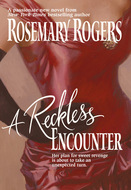This book cannot be downloaded as a file but can be read in our app or online on the website.
Read the book: «The Disappearance»
ANNABEL KANTARIA is a British journalist who now lives in Dubai with her husband and children. She has edited and contributed to women’s magazines and publications throughout the Middle East. The Disappearance is her second novel.
The Disappearance
Annabel Kantaria

Also by Annabel Kantaria
Coming Home
For Maia and Aiman
Acknowledgements
A massive thank you to the wonderful people who helped bring this book to fruition: my inspirational agent Luigi Bonomi, Alison Bonomi, and my brilliant editor, Sally Williamson. Thank you, too, to all those beavering away behind the scenes at Harlequin to get the book produced, printed, marketed, publicised and sold. Thank you, too, to my friend and best beta reader ever, Rachel Hamilton.
A special thank you to all at the Emirates Airline Festival of Literature – in particular Isobel Abulhoul and Yvette Judge, and to Charles Nahhas of Montegrappa.
I’d also like to thank my parents-in-law, Natu and Niru Kantaria. It was with them that I first set foot on a cruise ship, and it was on that ship that the idea for this story was born (before you ask: yes, we all made it back to shore). Thank you, too, to all those who read and enjoyed Coming Home; and to all the wonderful book clubs who’ve invited me to join them for an evening of book chat.
Last, but not least, thank you to my cheerleaders: those wonderful friends who stand quietly behind me, cheering me on – you know who you are; thank you to my mum, and to my special little family: Sam, Maia and Aiman.
Table of Contents
Cover
About the Author
Title Page
Also by Annabel Kantaria
Dedication
Acknowledgements
18 July 2013, 10 p.m.
PART I Before
December 1970 Tilbury, England
November, 2012 Truro, Cornwall
January 1971 Bombay, India
March 1971 Bombay, India
November 2012 Truro
March 1971 Bombay, India
April 1971 Bombay, India
November, 2012 St Ives, Cornwall
July 1971 Bombay, India
15 July 1971 Bombay, India
November 2012 Penzance
July 1972 Bombay, India
January 2013 St Ives
August 1972 Bombay, India
February, 2013 Penzance, Cornwall
15 July 1973 Barnes, London
September 1976 Barnes, London
March, 2013 Penzance, Cornwall
December 1976 Barnes, London
June 1976 Barnes, London
April 2013 St Ives, Cornwall
December 1976 Barnes, London
April, 2013 St Ives, Cornwall
April 2013 St Ives, Cornwall
December 1976 Barnes, London
December 1976 Barnes, London
April 2013 Truro, Cornwall
15 July 1978 Barnes, London
Part II During
12 July 2013, 8 a.m.
12 July 2013, 4 p.m.
14 July 2013, 9 a.m.
14 July 2013, 11 a.m.
14 July 2013, 11 a.m.
14 July 2013, 8 p.m.
14 July 2013, 10.15 p.m.
15 July 2013, 7.30 a.m.
15 July 2013, 10 a.m.
15 July 2013, 11 p.m.
16 July 2013, 9 a.m.
16 July 2013, 5 p.m.
17 July 2013, 8 a.m.
17 July 2013, 3 p.m.
17 July 2013, 3.45 p.m.
17 July 2013, 5 p.m.
17 July 2013, 5.30 p.m.
17 July 2013, 6 p.m.
18 July 2013, 9 a.m.
18 July 2013, 10.30 a.m.
18 July 2013, 8.30 p.m.
18 July 2013, 10 p.m.
18 July 2013, 11.30 p.m.
PART III Before
September 2012 St Ives
November 2012 Truro
November 2012 Truro
November 2012 St Ives
December 2012 Truro, Cornwall
April 2013
April 2013
April 2013 St Ives, Cornwall
PART IV After
September 2013 Truro, Cornwall
September 2013 Truro, Cornwall
Epilogue
Endpage
Copyright
18 July 2013, 10 p.m.
Captain Stiegman’s gaze swept around the ship’s library, shifting like a search light until it had touched everyone in the room. He took a deep breath, steadied his hands on the back of a chair and spoke. ‘The search has been called off.’
I pressed my hand to my mouth, stifling sob. Even though I’d been primed to hear these words, the sound of them left me winded: until now I’d still held out hope. There had been a mistake; Mum had been picked up by another ship. She’d been brought aboard, cold, weak, wrapped in a silver blanket, but alive. She’d floated on her back; she’d clung onto some flotsam; she’d been rescued by a lifeboat. Failing any of those scenarios, her body had been recovered. Anything but this; this inconclusive conclusion.
Captain Stiegman stood motionless. He was waiting for a response. I looked at John. He didn’t meet my gaze. He was looking at the floor, his thin lips pressed in a hard line, his expression inscrutable. The only part of my brother that moved was his hand, his fingers tapping a rhythm on the arm of the stuffed leather armchair. I wanted to speak but there were no words.
Captain Stiegman paced the library floor, his steps lithe in his rubber-soled shoes. Doris, the cruise director, stood awkwardly by the bookshelves, a walkie-talkie in her hand, her lipstick rudely red. Outside the picture window, small whitecaps topped the ocean like frosting. I imagined my mother’s arms poking desperately up from the crests of each wave, her mouth forming an ‘O’ as the lights of the ship faded into the distance. In the library, you couldn’t feel the low rumble of the ship’s engines that permeated the lower decks, but snatches of a Latin beat carried from the Vida Loca dance party taking place on the pool deck outside. Doris’s walkie-talkie crackled to life then fell silent.
‘The decision has not been taken lightly,’ said the captain, his English curt with a German accent, his words staccato. ‘We have to face the facts. Mrs Templeton has been missing for over forty hours. The ship was sailing at full speed on the night she was last seen. We have no idea when she went overboard, nor where – the search area covers thousands of square kilometres.’
He paused, looked at John and me, then—perhaps heartened by the absence of tears – continued, ticking off points with his fingers as he spoke. A band of dull platinum circled his wedding finger.
‘As you are already aware, I did not turn the ship. This was because, with Mrs Templeton missing for thirty-nine hours before the search was initiated, I felt there was nothing to be gained by retracing our route. It is my belief that Mrs Templeton did not fall overboard shortly before she was reported missing, but many hours prior to that, most likely in the early hours of the sixteenth of July.’
I opened my mouth to speak – this was pure supposition – but the captain raised his hand in a request for me to be patient. ‘However,’ he said, ‘tenders were dispatched from both Mykonos and Santorini, which is the area in which the ship was sailing when Mrs Templeton was last seen. A fleet of tenders traced our route from either end.’ Now he paused and looked at each of us in turn once more. I gave a tiny shake of my head, eyes closed; there was nothing I could say to change what had happened.
‘The Coast Guard was informed as soon as the ship search yielded nothing,’ continued the captain. ‘Two helicopters were scrambled and all ships within a thirty kilometre radius of the course we took that night were asked to join the search.’ He paused again, looked at his shoes, then up again. ‘I believe there were five vessels involved. The search has been fruitless. Mrs Templeton could now have been in the water, without a floatation device, for up to forty-eight hours. She was …’ he searched his memory … ‘seventy years old?’ His voice trailed off and he looked again at John, then at me, his eyebrows raised, the implication clear: she could not have survived.
John closed his eyes and nodded almost imperceptibly. Captain Stiegman echoed the nod. I opened my mouth then shut it again.
‘Thank you,’ said the captain. He bowed his head; looked up again after a respectful pause. I felt the thump of the music from outside. ‘With the engines on full power, we should make Venice by dawn. I’m obliged to inform local police we have one passenger lost at sea. They will come aboard. They will talk to you. In a case like this, it is a formality.’ He removed his captain’s hat, held it to his chest, his eyes closed again for a second. ‘I am sorry for your loss.’
PART I
December 1970
Tilbury, England
Audrey Bailey is on deck as the SS Oriana finally begins to ease her way backwards out of the dock. Someone’s given her a streamer, but she’s holding it clenched in her fist as she stands cheek by jowl with the other passengers and stares silently at the crowds on the quay. Everyone’s waving flags, calling and shouting to friends and relatives. A band’s playing onshore, and she can hear the rousing rhythm of sea shanties. The din is unbearable.
Then, as Audrey stares at the mass of humanity below, she catches sight of something that takes her breath away; the shape of a man, the colour of his hair, and the way he moves his arm as he waves a white hankie at the ship. Reflexively, Audrey raises her hand and waves back, knowing even as she does that it can’t be; it can’t be her father.
‘Bye,’ she mouths, the words silent on her lips. ‘Bye Daddy.’
Audrey’s hand remains in the air for a second or two as she turns her eyes to the sky, overcome with emotion. Then she turns abruptly and pushes her way back through the crowds, no longer willing to witness the ship’s departure. She walks until she finds a deck that’s less populated, sinks into a deckchair and tries simply to exist. All that is her, all that is Audrey Bailey, is gone. Her body is a shell, the softness inside her decimated. She sits in the deckchair for a long time, her head bowed; her eyes closed, just breathing. In, out, in, out, in, out. If I do this enough, she thinks, this day will end. And then I will do the same tomorrow. I will get through this. One day at a time.
Oblivious to her surroundings, Audrey does nothing but exist.
After some time – maybe an hour; maybe more – Audrey feels the rhythm of the engines move up a notch; she senses faster movement. She opens her eyes slowly and looks up. Her hair’s whipped by a fresh breeze and she sees that the ship’s already at sea. Slowly, she walks to the railing and stares down at the murky grey-brown water.
There are plenty more fish in the sea.
Audrey tries to see through the water; tries to seek out something – anything – of the sea life that must swim far beneath the shipping lane.
So where are they – these famous fish? If I had a penny … Audrey shakes her head to stop the thought. She’s had it so many times she doesn’t even need to complete the sentence: if she had a penny for every time some well-meaning person’s given her arm a sympathetic rub and told her that Patrick ‘clearly wasn’t the right one for you, dear’ and that there are ‘plenty more fish in the sea’, she’d have been able to afford proper nursing care for her dad, and given herself a bit of a break. Maybe then Patrick would have stayed. It’s a circular thought; one that’s now so familiar it’s become part of the fabric of her being.
Audrey looks up. In the distance she can see land. It’s still England, she presumes, and she feels a curious detachment from the leaving of her homeland for the first time in her life. There’s nothing there for you anymore, she tells herself. Nothing. She’s adjusted as much as anyone can to losing her mother at a young age; now her father – her rock – has gone, too: a stroke, a painfully slow recovery, and then another, massive stroke.
Audrey swallows a sob. Since the funeral, Audrey’s been haunted by dreams –cruel dreams in which both her parents are still alive—and then she wakes, sweating, in the early hours, plagued by the terror that she’s suddenly alone in the world. But, rather than lie in bed panicking, Audrey’s learned to get up – at 3.30 a.m., at 4 a.m. – and to pace the worn-out carpet of her rented studio. She tries to outwalk the fear of being alone: no parents, no fiancé, no plans, no life.
Now, standing on the deck of SS Oriana, she takes a deep breath. Her life is changing. Changing for the better. She rummages in her coat pocket and pulls out an aerogramme, the thin paper covered in loops of blobby blue biro.
‘Dear Audrey,’ she reads, although she’s read it so many times, spent so many nights thinking about it, she knows it off by heart. ‘My parents told me about your father. I know we haven’t been in touch for a while, but I wanted to reach out and let you know I’m thinking of you. I’m so sorry. I just can’t imagine what you must be feeling.
‘I hear you’re a legal secretary in London. I always knew you’d get a good job: you were always top of the class. I’m based in Bombay now – yes, Bombay! I know! I work for a shipping firm and I like it here very much. But what I wanted to say is if you ever feel a need to get away; if things get too much for you in England, come to India. The P&O line sails to Bombay from Tilbury and Southampton. I’d love to see you – and sometimes a change of scene can really help.
‘Much love, Janet’
Audrey looks up from the letter, a picture of Janet’s face in her mind’s eye. Dear, sweet Janet. It’s fate, Audrey thinks. She has the sense that, somehow, from beyond the grave, her father has pulled strings to get this invitation to her because sailing to India is the right thing for her to do. Her parents met and married in Bombay and Audrey’s grown up with stories about this exotic land of palm trees and British buses, of chai wallahs and Rupees – she’s always felt a pull. So, yes, today Audrey is sailing away from England. It might just be for a holiday – but, equally, it might be forever.
November, 2012
Truro, Cornwall
It started the day Mum crashed her car. It was a Saturday morning and the rain was coming down so hard it didn’t look real; it was special-effect, Hollywood rain. Outside the supermarket, but still undercover, I stood for a moment and surveyed the scene: the clouds were so low they looked like they were trying to land on the trees. The tarmac was slick with rain, and cars circled like sharks, wipers swishing as their drivers hunted for somewhere to park – it was nearly lunchtime and, inside, the supermarket had been teeming.
Already I was tired, feeling a little faint; hoping with all my heart that the faintness could mean something other than my having skipped breakfast. With my mind on the tiny life that I wanted so badly to believe was growing in my belly, I took a deep breath and, shopping bags banging my shins, dashed in the direction of my car, fat drops of rain plastering my hair to my head. By the time I reached the row where my car was parked I was soaked. A car crawled at my heels, eager for my space, and I jerked my head towards where my car was, willing the driver to be patient.
I opened the boot and threw the shopping bags in, slammed down the lid, and slid into the driver’s seat, trying to shrug off my wet coat as I went. I fastened my seatbelt, started the engine, shifted gear, then put the car into reverse. The phone rang and my body reacted viscerally: a quickened pulse, a catch of my breath. I’d waited all morning for a call from the doctor.
My eyes snapped to the dashboard display: not the doctor. John.
‘Really?’ I sighed. I almost didn’t pick up, scared I’d miss the doctor’s call if I did. But John must be calling for a reason; my twin never phoned just for a chat. With a sigh, I tapped the Bluetooth to connect and started to reverse the car out of the space.
‘Lex? Is that you?’ John’s voice filled the car. ‘I’ve been trying you for ages.’
‘I’m out,’ I said. ‘What’s up? Is Mum okay?’
‘Well, that’s why I’m calling.’
Out of the parking space, I eased the car through the congested car park and onto the road.
‘What? What’s happened? Is she okay?’
‘She’s had a car accident.’
‘Oh my God! Is she all right?’
‘I’ve just spent half the night and most of this morning at the hospital. But she’s all right. Ish.’
‘What do you mean “ish”? She’s either okay or she’s not okay!’ My voice rose.
‘She’s fine. No broken bones. It happened late last night. I tried to call you but your phone was off. What were you thinking letting her drive back from Truro so late? You should have asked her to stay – or at least dropped her off yourself!’
Mum and I had gone to an exhibition of old photos of India the night before. I hadn’t seen the attraction myself, but Mum had lived there for a bit when she was younger and still got a bit misty-eyed about it. She’d asked me to go with her, given it was within walking distance of my house. John had refused point-blank to drive her up from St Ives; I’d half-heartedly offered to come down and pick her up but she’d insisted on driving herself and, distracted by the thought I might finally be pregnant, I’d given in – way too easily, I realised now.
‘I did ask her to stay! When I realised how late it was, I asked her to stay! She refused. You know what she’s like.’
John tutted. ‘At the very least, you could have kept your phone on.’
I started to argue then remembered that the battery had gone flat and I’d fallen into bed exhausted when I’d got back, forgetting to put it on to charge. Mark and I didn’t have a landline.
‘Oh God,’ I said. ‘Flat battery.’
‘Well, that’s very convenient,’ said John. ‘So it was me they called in the middle of the night. They took her to hospital. Kept her in overnight.’
‘You said she was okay! Why did she have to stay in?’
‘She hit her head; strained her neck; got a few bruises. They just wanted to observe her.’
‘Did you stay with her?’
‘No. She didn’t want me to. Anyway, they discharged her this morning on condition that someone stays with her tonight. She’s been in shock and may have whiplash. They don’t want her to be alone.’
‘Okay.’ I waited for John to tell me he was going to stay with Mum. It made sense given how much closer he lived.
‘So, that’s why I’m ringing,’ he said. ‘Can you come?’
‘Me?’
‘Yes, you, Lexi. I can’t stay with her any more. I’ve done my bit. The twins are at a swimming gala this afternoon and Anastasia will kill me if I’m not there.’ John pronounced his wife’s name with a long ‘a’ and a soft ‘s’, emphasis on the middle syllable: Anna-star-seeya. Never ‘Anna-stay-zia’. It still blew my mind that my rather unemotional and unspontaneous brother had come back from a holiday to Estonia not just with a beautiful wife and two ready-made children, but with his new mother-in-law, too.
‘But …’ I thought about the call I was waiting for from the doctor. I had a mountain of marking to do and all I really wanted to do was curl up on the sofa and nurture the life I was convinced was growing inside me, not drive down to St Ives in the pouring rain and play nursemaid to Mum.
‘Please can you do it, John?’ A sob caught in my throat. ‘Please?’
John sighed. ‘I’m asking you nicely, Lexi. But it really is your turn.’ There was a silence. ‘Look. Isn’t this why you moved to Cornwall? So you could help out a bit, too?’ The implication was there: until Mark and I had moved to Truro six months ago, John had borne the brunt of looking after Mum while I ‘ignored my responsibilities’ – John’s words – up in London.
Knowing he had the moral high ground, John continued almost seamlessly. ‘How quickly can you be there? I dropped her off just now, so the sooner, the better, really.’
‘You left her alone? Fantastic.’ I slammed the brakes on as a car pulled out in front of me.
‘I had to go, Lexi,’ John said, his voice slow and deliberate. ‘I have a family, remember? I’ve already spent half the night with her at the hospital. And then I scrapped our plans for the morning. I sorted out the insurance. I organised her car to be picked up, I took her home from the hospital and now I’ve made her comfortable. She’s not very chatty – she’s on the sofa, looking a bit dazed. I left her with a crossword. She’ll be fine until you get there.’
Silence hung heavy on the line. A silence in which I realised that I had no choice. I indicated and turned into my road, the car’s tyres swishing through puddles.
‘Are you driving?’ John asked.
‘Yes.’
‘Oh. You can call me back when you get in, if you want.’
‘No it’s okay. Hands-free.’ I paused. ‘Okay, I’ll come down.’
‘Thanks.’
I pulled into a rare parking space right outside my house, sending a silent thank you to the gods as I did so.
‘By the way,’ said John. ‘While you’re there, can you observe her a bit? I mean, more than usual? I thought she was acting a bit odd, like she wasn’t all there. She was just sitting there this morning, staring into the distance. It’s like she’s in a different world. I’m worried the hospital might have missed something. You know – with the bang on the head.’
‘Sure. But I can’t go for an hour or two. I need to speak to Mark and he’s not due back for a bit.’
‘Okay,’ said John. ‘Thanks, Lexi. Bye.’ The line disconnected and my phone buzzed at once: a missed call from the doctor’s number, followed by the beep of a text message asking me to call. I dialled in.
‘Mrs Scrivener,’ the doctor said when my call was put through. I heard papers rustling; imagined her looking for my test results. ‘How are you feeling?’
‘Fine, thank you,’ I said. ‘A bit tired.’
‘Okay. Well, the results of your blood test are back.’ She paused.
‘And?’ I said.
‘Your hCG level is very low.’
‘What does that mean? Am I pregnant?’
The doctor sighed. ‘Well. It’s really too low for a healthy pregnancy.’
‘What do you mean? I might not be? The test I did at home was positive. I did two really sensitive tests! Both were positive!’
The doctor’s blood test was supposed to be a rubber-stamp of news I already knew. How could it not be certain when the over-the-counter test had been?
The doctor sighed. ‘It’s possible that something started and is now failing. A lot of pregnancies fail very early on, before many women even suspect they might have been pregnant. Sometimes, testing very early can backfire …’ Her voice was gentle. She paused and I didn’t say anything.
I’d been so certain. I’d even felt faintly sick this morning. I thought about the tiny babygros I’d just been stroking in the supermarket just now; the white Moses basket I’d picked out online. White because, although I hoped for a girl, I didn’t want to know the sex.
‘I’m very sorry,’ said the doctor.
‘I … just … I wasn’t expecting this.’
‘I know. It’s very common, though. More common than you’d think.’
‘Is there anything I can do? To increase my chances next month?’
‘Just be kind to yourself. Eat well, exercise. Get enough sleep. Take it easy and try not to worry.’
Try not to worry! ‘Okay,’ I said. ‘Thank you.’
I pressed disconnect and let my forehead slump onto the steering wheel as I wrapped my arms around myself. I’d been so sure this time! How could I not be pregnant? Even though it was very early days, I’d felt all the classic symptoms. The last thing I felt like now was driving down to St Ives to look after Mum. As soon as I’d thought it, guilt washed over me. John had done his bit and I’d still expected him to do more. But that guilt was nothing compared to the guilt I felt about the pregnancy. Why couldn’t I give Mark a baby? What was wrong with me?
Deep down, I knew the answer: at forty-two, time was hardly on my side.








